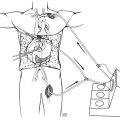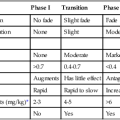The absence of teeth can greatly affect one’s facial aesthetics and the user’s health. Most actors, however, still consider dental cross as a tooth problem in the same line as other cosmetic deficiencies. This is indeed an untrue assumption as dental implants are much more than just an aesthetic concern. It is capable of restoring important functional features while addressing the user’s bone loss, the dentition settings, dental habits, and the patient’s self-esteem.
The Impact of Missing Teeth: Why Dental Implants Are More Than Cosmetic
The Physical Impact of Missing Teeth
When one or more teeth are missing, one concern may not just be the gap in the smile. A missing set of teeth can bring about a couple of changes in the mouth and jaw, making it hard to chew, talk, and even change the appearance of the face. So, a tooth’s missing root in the jaw will eventually cause the jaw to lose some bone tissues as it gets bone density and strength from the acts of chewing. More unfortunately, this slowing down of the jaw reduces the movement of the bone which leads to bone loss thereby creating a consequent oral health issue and bad facial aesthetics even at a young age.
Moreover, missing teeth will leave spaces that can cause other existing teeth to move. Such teeth may eventually become disordered, leading to hard time biting or chewing and more tendency for the other remaining teeth to be more eroded. This may put the individual at a higher possibility of undergoing cavities, gum diseases, and other dental issues.
How Missing Teeth Affect Quality of Life?
The absence of teeth can disturb day to day action. Difficulty in chewing and biting is experienced which can restrict a person from making certain nutritional choices. Some people with missing teeth may tend to shy away from eating some types of food that are hard or chewy leading to a deficiency in essential dietary components thereby affecting general health.
In addition, there can be consequences on the speech due to the missing teeth, particularly the incisors if the space is located at the anterior portion of the dental arch.
The tongue gets pressed against the teeth and certain sounds are produced, and hence with the loss of teeth some particular structures are lost and pronunciation becomes altered which creates some form of obstacle in communication. In the long run, people start shunning gatherings or feel insecure about themselves in work and social context
The Psychological Effects of Missing Teeth
The psychological effects of missing teeth could be deep. People report lower self–esteem and feelings of worthlessness due to the gaps, which ultimately makes them withdrawn socially. Such a negative self-image can, in turn, create problems in workplace relations as well as social relations, resulting in dire consequences in mental health and emotional balance. Patients with at least one missing tooth can expect improved self-esteem as well as self–confidence after the placement of dental implants.
Why Dental Implants Are the Ideal Solution?
If you are looking for an effective treatment for the loss of teeth, dental implants should be your first step. Unlike traditional bridges and dentures, dental implants are completely different and offer a lasting solution. These implants are titanium rods placed into the jaw that provide the same structure as an actual tooth. Such a system not only provides a fabricated tooth but also integrates with the jaw to help maintain and promote healthy bone. With its placement, a complete whole crown is fitted which is designed to allow seamless functionality as that of a natural tooth.
Implants offer a number of advantages over other prosthetic devices such as dentures which can become loose and be uncomfortable or bridges that may require mutilation of the surrounding teeth. They remain well integrated within the jaw bone and provide a secure anchor enabling efficient chewing and speaking. The bone supporting the jaw and its adjacent teeth are also preserved, thus counteracting the external forces that cause sagging of the face and changes in the appearance of the person with time.




